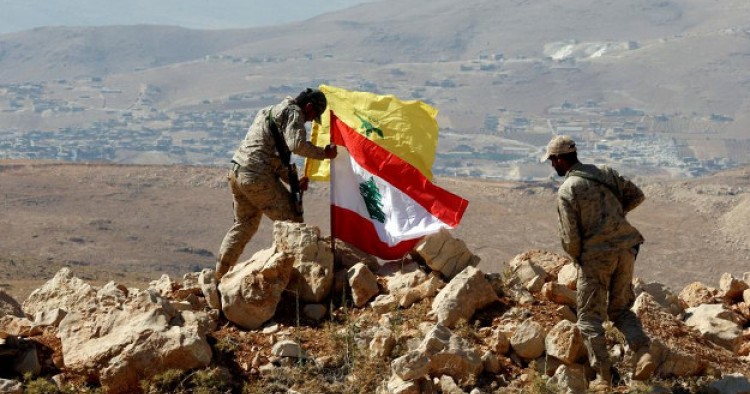From Tehran’s view, Hezbollah’s military operation against Nusra Front militants on the outskirts of the Lebanese town of Arsal near the Syrian border signifies Hezbollah’s growing political and military influence in Lebanon and the broader region. “There was more cooperation between Hezbollah and the Lebanese Army in the battle of Arsal than at any time in the past. And this cooperation signifies fundamental changes in Lebanon’s political sphere. Now, a golden triangle entitled ‘Army, Nation and Resistance’ has emerged that encourages Hezbollah to keep its weapons,” wrote Tasnim News Agency, which is affiliated with the Islamic Revolution Guards Corps (I.R.G.C.).
“The battle of Arsal demonstrated the extent of Hezbollah’s influence and power in the Beirut government’s institutions and Lebanon’s political, military and security organizations,” claimed the artilce published today. “Although Hezbollah participated in the Syrian war, regional and international developments in the battle of Arsal favored Hezbollah. As such, Hezbollah’s internal enemies in Lebanon such as the Future Movement led by Saad Hariri were unable to say anything against this movement [Hezbollah] related to the battle of Arsal. This is because the country’s interests triumphed over the interests of the political party supported by Saudi Arabia, and the Future Movement was weakened,” it added.
The article stressed that the Syrian Army played a key role in the victory over the Nusra Front along the shared Lebanese-Syrian border, and claimed that the Arsal battle was part of the “broader Iranian-Syrian strategy.”
In the past two weeks, senior Iranian officials have congratulated Hezbollah and the Lebanese government on the victory in Arsal, urging all sides in Lebanon to join hands to fight Israel and “Takfiri terrorism.” In a meeting with Lebanese lawmakers, Iran’s Foreign Minister Javad Zarif commended increased cooperation between Hezbollah and the Lebanese Army and stressed that unity is the best approach to stop Israeli “crimes.”
Hossein Amir Abdollahian, a special aide to Iran's parliament speaker, echoed similar remarks in a meeting with Lebanon’s Parliament Speaker Nabih Berri in Beirut. “The people, the army and the resistance in Lebanon are known as the three main sides of victory against the Zionist regime and Takfiri terrorism.”
Comment: Although Hezbollah has succeeded in turning the tide of war in favor of the Syrian regime, its involvement in a foreign sectarian war has adversely affected Lebanon’s political and security situation. Militants from several Syrian rebel organizations – including terrorist groups such as the Nusra Front and the Islamic State – have been operating on both sides of the Syrian-Lebanese border and have carried out attacks against Hezbollah and the Lebanese Shiite communities in recent years.
On July 21, Hezbollah began an operation against Nusra Front positions on the outskirts of Arsal. The two sides ultimately signed a deal to exchange prisoners and the Nusra Front consented to move its fighters to Syria’s Idlib Province. Hezbollah leader Hassan Nasrallah has said that his forces will hand over all territory it has captured to the Lebanese Army, but whether he will honor his pledge in the near future is uncertain. The Lebanese Army, which is supported by the United States, did not take part in the Arsal operation but is expected to lead the next phase of operation against the Islamic State strongholds near the Syrian border.
For Hezbollah, the Syrian regime’s survival has been an existential need and the future of the Syrian war will greatly impact Hezbollah’s future role in Lebanon and the Levant region. A clear victory by the Assad regime will empower Hezbollah and further solidify the group’s domination of Lebanon’s politics and security, whereas the fall of the Syrian regime would have denied Hezbollah a crucial partner and a strategic lifeline for Iranian assistance. While the war in Syria is far from over, the survival of Assad has further consolidated the influence of Hezbollah and Iran in Lebanon and in the Levant region.
The Middle East Institute (MEI) is an independent, non-partisan, non-for-profit, educational organization. It does not engage in advocacy and its scholars’ opinions are their own. MEI welcomes financial donations, but retains sole editorial control over its work and its publications reflect only the authors’ views. For a listing of MEI donors, please click here.













